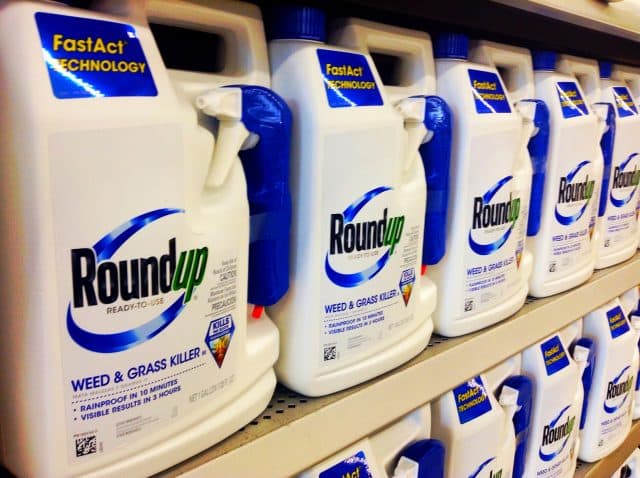In 2017, over 800 people filed lawsuits against Monsanto, one of America’s top agricultural companies. In 2018, the company was ordered to pay $289 million to an individual who frequently used one of its products.
Why?
It’s weed killers contain glyphosate, a chemical shown to significantly increase the development of cancer. When Dewayne Johnson sued Monsanto last June, accusing their weedkiller of causing his terminal non-Hodgkin lymphoma (NHL), the company appealed, claiming there was no proven risk between the chemical and the disease.
But a new study published in Mutation Research by the University of Washington has contradicted that claim. After reevaluating the current available studies involving glyphosate, and then conducting their own, the researchers concluded that the results “consistently” show a link between the chemical and NHL.
 Whether or not connections exist between glyphosate and cancer has been the cause for widespread scientific discussion. In 2015, the World Health Organization’s International Agency for Research on Cancer claimed that glyphosate was “probably carcinogenic.” But two years later, the US Environmental Protection Agency said that it was “not likely to be carcinogenic to humans.” Bayer, the company that acquired Monsanto in 2018, responded to Johnson’s case that glyphosate was “a safe and efficient weed control tool.”
Whether or not connections exist between glyphosate and cancer has been the cause for widespread scientific discussion. In 2015, the World Health Organization’s International Agency for Research on Cancer claimed that glyphosate was “probably carcinogenic.” But two years later, the US Environmental Protection Agency said that it was “not likely to be carcinogenic to humans.” Bayer, the company that acquired Monsanto in 2018, responded to Johnson’s case that glyphosate was “a safe and efficient weed control tool.”
The public contradictions on the subject have left consumers very confused. So what does this new study have to offer us?
 Specifically, the authors say that individuals who are exposed to glyphosate have as much as 41% increased risk of developing cancer, especially of the immune system. According to CNN, the team looked at people who had the “highest exposure” to the chemical, and discovered that they had a greater chance of developing non-Hodgkin lymphoma. The study’s senior author, Lianne Sheppard, professor in biostatistics and environmental and occupational health sciences, claims she is “convinced” that the chemical is a carcinogen.
Specifically, the authors say that individuals who are exposed to glyphosate have as much as 41% increased risk of developing cancer, especially of the immune system. According to CNN, the team looked at people who had the “highest exposure” to the chemical, and discovered that they had a greater chance of developing non-Hodgkin lymphoma. The study’s senior author, Lianne Sheppard, professor in biostatistics and environmental and occupational health sciences, claims she is “convinced” that the chemical is a carcinogen.
CNN states that Bayer has responded to this new analysis with much criticism. Claiming that it has significant flaws, Bayer concludes that the study “provides no scientifically valid evidence that contradicts the conclusions of extensive body of science demonstrating that glyphosate-based herbicides are not carcinogenic.”
 As with all studies, this one has its limitations, and the researchers themselves openly acknowledged them. For one, they were only able to use the “limited published data” on the subject, and that data varied in nature. The studies each covered different groups of populations, and the level of exposure of the chemical was difference among all the reports.
As with all studies, this one has its limitations, and the researchers themselves openly acknowledged them. For one, they were only able to use the “limited published data” on the subject, and that data varied in nature. The studies each covered different groups of populations, and the level of exposure of the chemical was difference among all the reports.
Other experts confirm the study’s limitations, but they also believe the report has provided important information. For instance, CNN reports that Francis Martin, a biosciences professor at the University of Central Lancashire, is pleased with the study’s findings. He believes that scientific debate over the safety of glyphosate is necessary, as many people use the chemical regularly. According to Martin, right now, there aren’t many studies analyzing the safety of glyphosate. If anything, the report has given new information that will prompt future, bigger-scale studies that may produce concrete information.


























